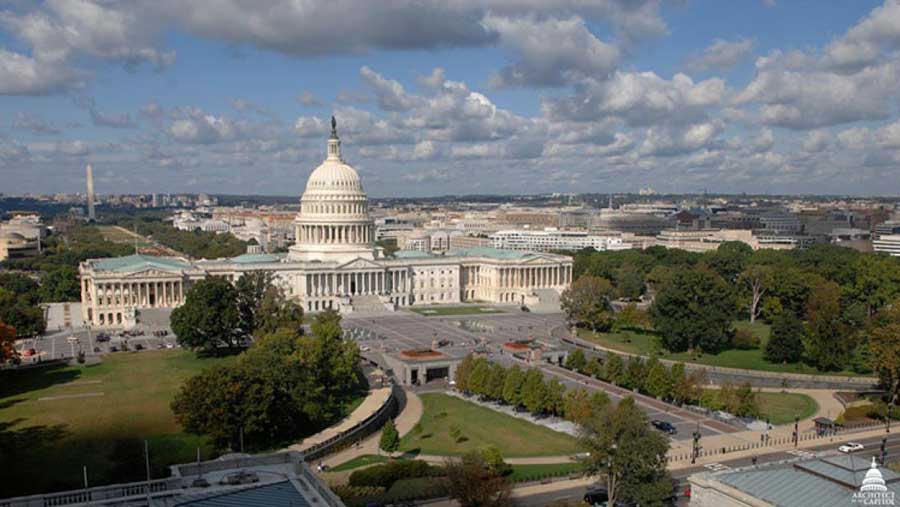House Packs a Lot Into Repack Hearing

The smarter way to stay on top of broadcasting and cable industry. Sign up below
You are now subscribed
Your newsletter sign-up was successful
The House Communications Subcommittee drilled into the FCC's post-incentive auction repack plan Thursday in a hearing that touched on everything from hurricanes and tornados to tall towers, timelines and even the Sinclair/Tribune merger, which actually drew a fair share of time and attention.
Most of the ground covered was not new, but there were some key takeaways, which were that both keeping broadcasters on air and serving viewers and freeing up spectrum for deploying and advancing broadband service are important, that how much money and time that will take remain points of debate, and that Congress will likely have to step in, at least on the financial end.
Some legislators emphasized the need to hold broadcasters harmless, while others countered that they should not be allowed to do any foot-dragging, noting that wireless carriers had bid $20 billion for the spectrum.
Related: Tower Guy to Hill: Post-Auction Repack Should Not Be Rushed
CTIA witness Scott Bergman likened it to buying Jet blue, yet not being able to fly for years.
House Energy & Commerce Chairman Greg Walden (R-Ore.), himself a fellow broadcaster, signaled that there was more work to be done to make sure that broadcasters had the money they needed, including extending the funds to co-located FM stations, some 700 of them the National Association of Broadcasters said, that would be affected by the repack, including potentially having to go dark if they did not pony up for auxiliary transmitters.
Congress did not include any funds for radio stations in the $1.75 billion repack fund, which Walden signaled was an oversight, as was not doing more to account for TV station translators that extend the signals of full-powers to remote areas, which are not protected in the repack.
Related: LPTVs Air Repack Grievances to House Panel
Another key takeaway was NAB's message that it was not opposed to the 39-month post incentive auction repack timeline.
NAB executive VP and General Counsel Rick Kaplan said broadcasters were already working hard at meeting that timetable, but were looking for some more assurances that there would not be a hard deadline if circumstances beyond broadcasters' control intervened, and that meant some assurances from Congress beyond those given by the FCC in a framework that includes a waiver process, but also signals those circumstances should not delay that ultimate 39-month deadline.
This is what the FCC, in its transition plan notice, had to say about that flexibility:
“In order to facilitate a timely and orderly transition, we find that we must evaluate on a case-by-case basis requests for modification of any station’s facility160 or transition deadline . . .We find that the proposed approach balances the important goal of clearing the 600 MHz Band within the 39-month transition period, as well as the additional goals of facilitating a smooth transition, limiting viewer impact, and providing broadcasters the flexibility to make requests that are necessary to construct their post-auction facility and address unforeseen circumstances to prevent stations from going dark.
“While the Bureau does not intend to grant requests that would disrupt the transition, our aim is not to discourage stations from proposing alternative transition solutions that could create efficiencies or resolve unforeseen circumstances that could otherwise force a station to go dark.
“The Bureau will view requests that have such adverse effects on the transition schedule more favorably if the requesting station demonstrates that it has the approval of all the stations that would be affected if the request were granted, or it agrees to take steps during the transition period to mitigate the impact of the proposed request.”
Several Democrats on the panel brought up the Sinclair/Tribune merger, saying that the combined company, with over 200 stations, could have an untoward impact on the repack, including delaying it if it dovetailed with Sinclair's interests in the timing of the ATSC 3.0 transmission standard rollout or of its co-owned Dielectric subsidiary which will be integral to the repack.
One legislator even suggested Sinclair could give its stations' priority access to Dielectric to the detriment of competing re-packers. Sinclair has disputed those accusations, which were leveled at the FCC by opponents of the deal.
Not surprisingly given Irma and Harvey, hurricanes figure prominently in the questioning and statements. Broadcasters, and numerous legislators, suggested their life-saving coverage was an argument for making sure the Congress and FCC got the repack right for the sake of broadcasters and more importantly, their viewers.
Walden pointed to emergency communications as another reason Congress had to "figure out" what to do about translators.
Wireless carriers argued that getting the spectrum from broadcasters as soon as possible would help deploy lifesaving broadband and 911 connectivity to rural areas, pointing to the resiliency of their networks during the recent hurricane and suggesting it was vital to extend those networks.
Rep. Frank Pallone has introduced legislation to boost the $1.75 billion repack fund by another billion dollars. Patrick Butler, CEO of America's Public Television Stations, said that would be crucial to noncommercial stations, and the lack of such extra funding was almost and existential threat to noncommercial broadcasters who are working on a shoestring budget. He said they need that money ASAP.
The smarter way to stay on top of broadcasting and cable industry. Sign up below
Contributing editor John Eggerton has been an editor and/or writer on media regulation, legislation and policy for over four decades, including covering the FCC, FTC, Congress, the major media trade associations, and the federal courts. In addition to Multichannel News and Broadcasting + Cable, his work has appeared in Radio World, TV Technology, TV Fax, This Week in Consumer Electronics, Variety and the Encyclopedia Britannica.

